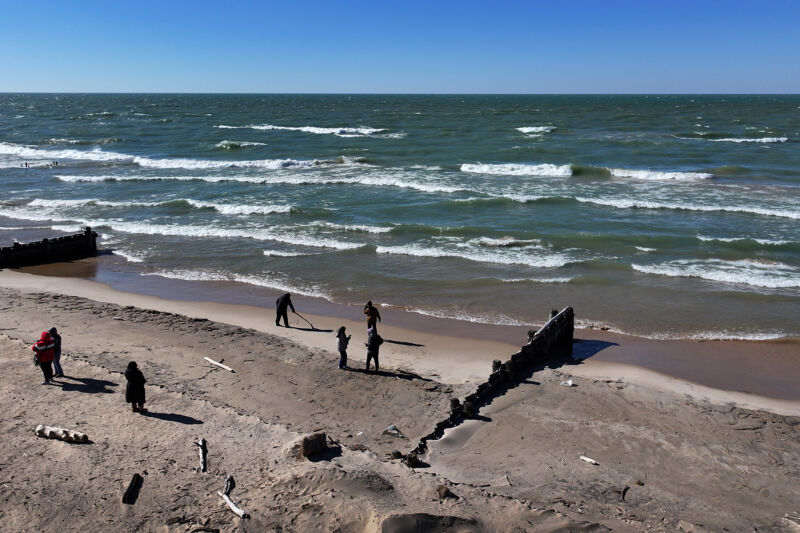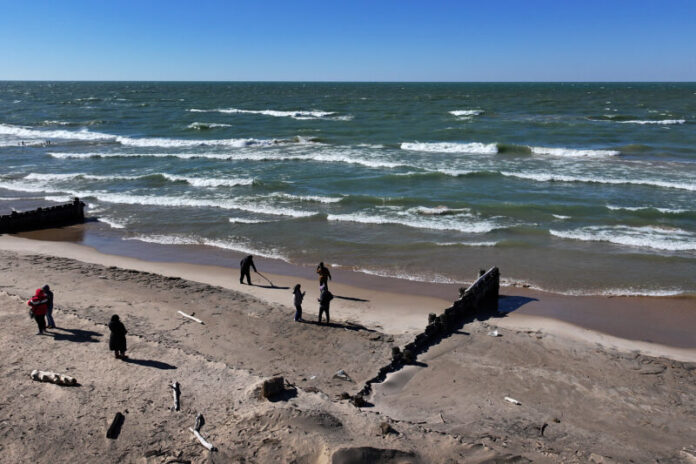
Enlarge / Waves roll ashore along Lake Michigan in Whiting, Indiana. (credit: Scott Olson/Getty Images)
This article originally appeared on Inside Climate News, a nonprofit, independent news organization that covers climate, energy, and the environment. It is republished with permission. Sign up for their newsletter here.
The aquifer from which Joliet, Illinois, sources its drinking water is likely going to run too dry to support the city by 2030—a problem more and more communities are facing as the climate changes and groundwater declines. So Joliet eyed a huge water source 30 miles to the northeast: Lake Michigan.
It’s the second-largest of the Great Lakes, which together provide drinking water to about 10 percent of the US population, according to the National Oceanic and Atmospheric Administration’s Office for Coastal Management.
Read 24 remaining paragraphs | Comments
Ars Technica - All contentContinue reading/original-link]




